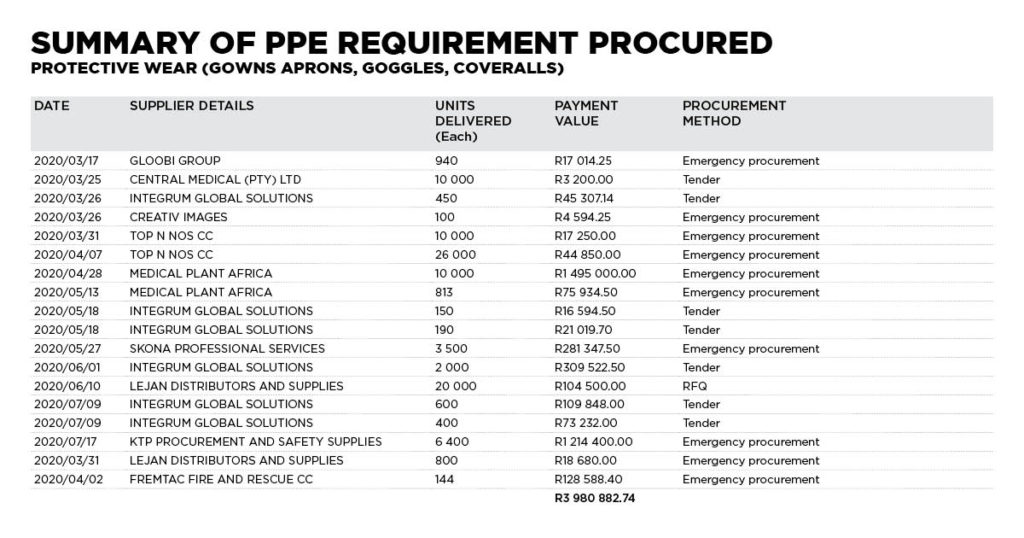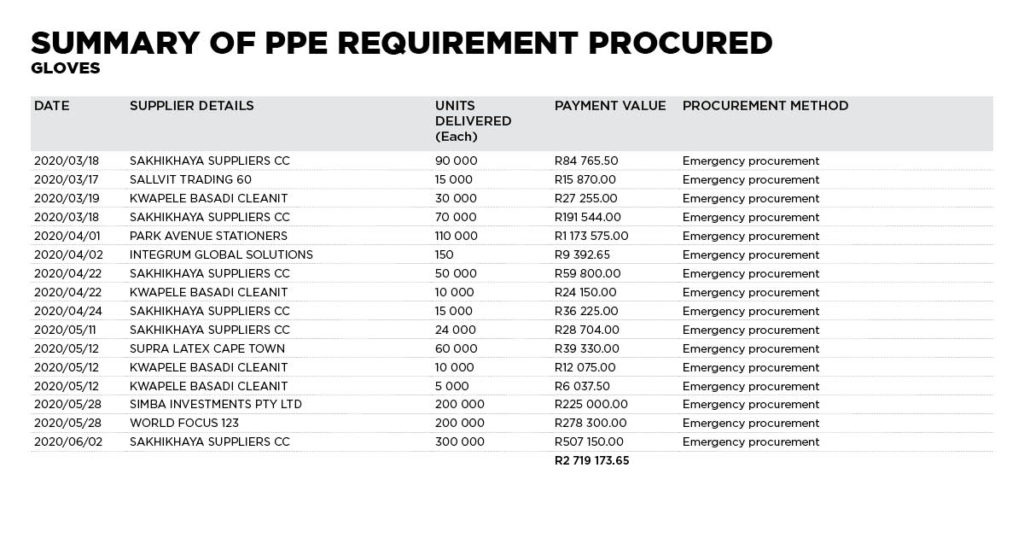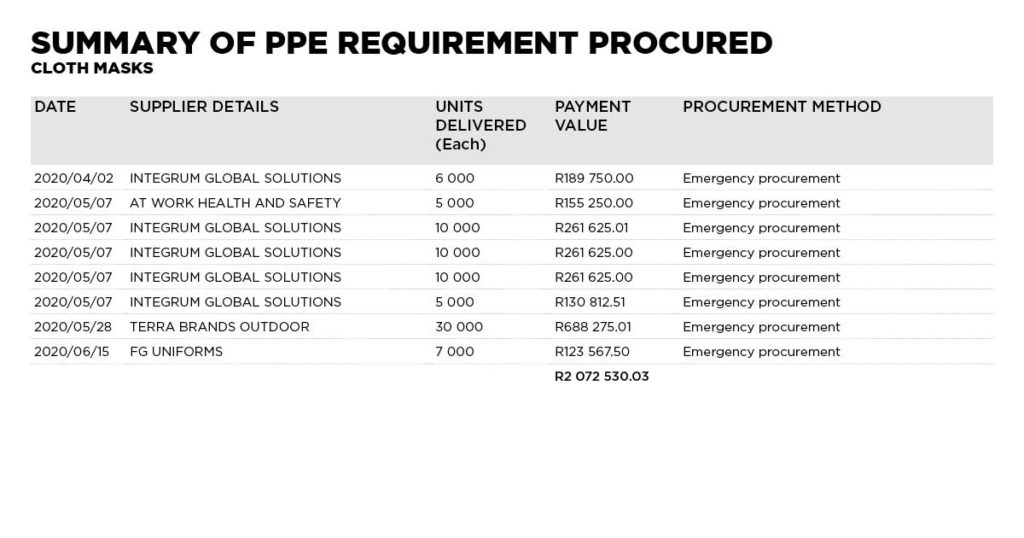Since 16 March 2020 until 31 July 2020, the City has spent more than R72,8 million on personal protective equipment to ensure that basic services can be continued while protecting frontline and essential members of staff in performing their duties. The City has acted in an accountable and transparent manner to ensure that these funds were spent appropriately and in line with National Treasury guidelines.
The City continues to prioritise Personal Protective Equipment (PPE) for COVID-19 specific requirements to ensure the safety of our staff and residents. Thus far, 1 358 318 gloves, 761 221 face masks (cloth, N95, FFP2, FFP1 and surgical) and 326 386 units of hand sanitiser and anti-bacterial soap have been issued to members of staff who require this in the line of duty.
Initially, some prices were higher than normal due to the constraints on national and international supply and demand caused by the COVID-19 crisis; however, as time has progressed, unit prices have come down.
‘From this total amount, we have procured some R3,9 million worth of goggles, gowns and coveralls; bleach and soap costing some R5,9 million and hand sanitiser of R20 million. Bearing in mind the absolute importance of face masks in preventing the spread of COVID-19, we also spent R33,4 million on various types of facemasks. The City also procured R2,5 million of thermometers. This has all been in an effort to continue our basic service delivery mandate in the safest way possible for staff and residents and to adhere to the COVID-19 regulations.
‘Importantly, our supplier list is open for all to scrutinise; the funding earmarked for this protective equipment has been spent as intended. The City has a zero-tolerance approach to corruption. Staff are required to sign declarations of interest so that we can see who is connected to whom and ensure our processes are ethical and legal.
‘The R72,8 million procured amount as well as the fact that all basic services have been performed and even enhanced where required due to COVID-19, is an illustration of how effective the City and the Western Cape Government have been in performing their duties and doing what is required to address this crisis. We also thank our residents for all the support and for making Cape Town shine despite the challenges that we face,’ said the City’s Mayoral Committee Member for Finance and Executive Deputy Mayor, Alderman Ian Neilson.
Where possible, the City used existing tenders to source requirements and in other instances, a competitive request for quotations (RFQ) process was followed. In instances where there was an immediate need to support frontline staff, emergency procurement was instituted through deviation processes. As far as possible, most deviations were tested for competitive pricing and negotiations with suppliers were undertaken to obtain value for money.
The City follows a transparent procurement process and has strictly complied to the National Treasury (NT) Emergency Procurement Guidelines.







Note: The sanitisers were purchased in different volumes (25 litres, 5 litres, 1 litres, 500 ml, 250 ml and 125 ml). The pricing would therefore vary depending on volumes purchased.


Note: The N95 masks were very scarce and supply was limited due to global demand and local shortages. These masks were purchased to ensure that frontline medical staff have the required protection when testing for possible COVID-19 and TB patients. The KN95 and FFP2 masks are needed by staff who perform work in highly dense public spaces and need adequate protection out in the field.


Note: The price of thermometers was high in the first two months due to national demand. However, the prices decreased as the available stock in the market increased. The initial prices paid were around R1600 and now the price is approximately R800. The price is lower than the price stipulated on the National Treasury MFMA Circular 102 which is R2 527. Due to the type of work environment and the need to test large numbers of people on a daily basis, the thermometers purchased had to be of a high quality as required by Occupational Health and Safety. While there may have been cheaper versions in the market, the specifications required digital infrared thermometers, 50 Memory Storages, Test Mode: 5-15cm, Non-Contact Testing Forehead Temperature Measure Time: 1 Second. Auto Shut-off: 5 seconds without operation, Battery Life: Approximately 3 000 uses.